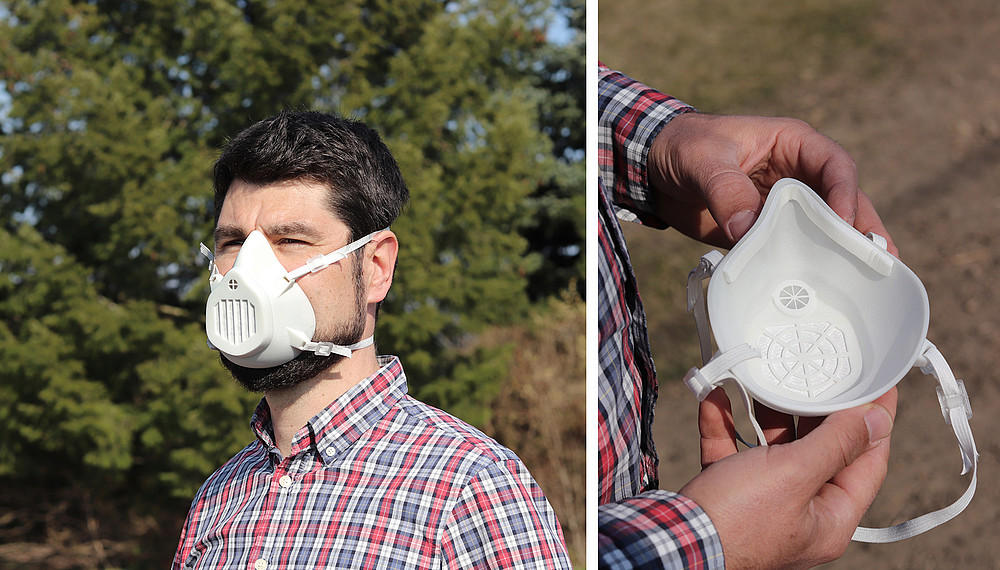The team from the Fraunhofer Plastics Center Oberlausitz (FKO) and colleagues from the HSZG have been working flat out over the past few days to develop an additively manufactured respiratory mask for regional needs.

The supply situation for professional protective masks is very tense in the current situation of the Covid-19 pandemic. Nursing staff, doctors and paramedics in particular are in urgent need of virus-proof FFP 2 or 3 masks. The team from the Fraunhofer Plastics Center Oberlausitz (FKO) and colleagues from the HSZG have been working hard over the past few days to develop an additively manufactured respiratory protection mask. The mask is 3D-printed from polyamide at the institute using a selective laser sintering process and is skin-friendly, resistant to disinfectants and - what's special - reusable. Compared to the usual FFP disposable masks, only the filter fleece is replaced here (cost: < 5 cents/filter). An exhalation valve is integrated into the mask to ensure that the filter is not quickly soaked by the breathing air and thus loses its effectiveness. The fleece was developed by the Saxon Textile Research Institute STFI in Chemnitz and has the same filtering effect on small particles (< 0.3 µm) as FFP3 half masks.
Production using 3D printing offers the decisive advantage that the masks can be provided at short notice and without expensive tooling costs. It is also easy to make changes to the geometry, produce different sizes and even customize them to fit the face. In selective laser sintering (SLS), a build chamber filled with plastic powder is partially melted by laser, layer by layer, until the finished masks can be removed from the remaining powder. The advantage of this process is the higher production speed compared to the widely used FDM process, which is used by most hobby 3D printers.
The 3D-printed protective mask is currently being tested for its practical suitability at Zittau Hospital and at an outpatient care service (Johanniter) in order to make further optimizations. The aim is in particular to cover the demand and supply gaps for medical staff and nursing staff in and around Zittau. Around 150 masks can be produced at the FKO every week. A regional plastics company has already expressed interest in an injection-molded version, which would allow even larger quantities to be produced. But until then, the Fraunhofer IWU printers will continue to work diligently.
In addition to respiratory masks, other protective equipment against the Covid-19 virus can also be produced at the institute at short notice as required. For example, the Fraunhofer researchers were able to successfully equip a practice in Dresden with 3D-printed door handle openers that allow the door to be opened without touching it.